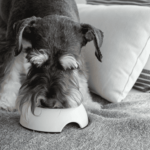Table of Contents
The British Bulldog, known for its distinctive appearance and gentle demeanor, is a beloved breed. However, their unique physical traits also make them prone to certain health issues. Understanding these common health problems is crucial for providing the best care for your Bulldog. This guide highlights the health issues in the British Bulldog, helping you recognize symptoms and seek appropriate treatment.

1. Brachycephalic Airway Syndrome
Brachycephalic Airway Syndrome (BAS) is common in British Bulldogs due to their short, flat faces:
- Symptoms: Snoring, labored breathing, exercise intolerance, and noisy breathing.
- Management: Maintain a healthy weight, avoid overheating, and consult your vet for potential surgical interventions.
- Prevention: Use a harness instead of a collar to reduce pressure on the airway.
2. Hip Dysplasia
Hip dysplasia is a genetic condition that affects the hip joints:
- Symptoms: Limping, difficulty rising, reluctance to exercise, and pain in the hip area.
- Management: Weight management, joint supplements, anti-inflammatory medications, and surgery in severe cases.
- Prevention: Ensure proper nutrition and avoid excessive exercise during growth periods.
3. Skin Infections and Allergies
British Bulldogs are prone to skin infections and allergies due to their skin folds:
- Symptoms: Redness, itching, scratching, and foul odor from the skin folds.
- Management: Regular cleaning of skin folds, medicated shampoos, and vet-prescribed treatments for allergies.
- Prevention: Keep skin folds dry and clean to prevent bacterial and yeast infections.
4. Cherry Eye
Cherry eye occurs when the gland of the third eyelid protrudes:
- Symptoms: A red, swollen mass in the corner of the eye, irritation, and excessive tearing.
- Management: Surgical correction is often required to reposition the gland.
- Prevention: Regular eye check-ups and prompt treatment of any eye issues.
5. Obesity
Bulldogs are prone to obesity, which can exacerbate other health issues:
- Symptoms: Excessive weight gain, difficulty breathing, and reduced mobility.
- Management: Balanced diet, regular exercise, and monitoring food intake.
- Prevention: Avoid overfeeding and provide a diet appropriate for your Bulldog’s age and activity level.
6. Heart Disease
British Bulldogs can be susceptible to heart conditions, such as congenital heart disease:
- Symptoms: Coughing, difficulty breathing, lethargy, and fainting.
- Management: Medications, lifestyle changes, and regular veterinary check-ups.
- Prevention: Regular heart health monitoring and maintaining a healthy weight.
7. Heat Sensitivity
Due to their brachycephalic nature, Bulldogs are highly sensitive to heat:
- Symptoms: Excessive panting, drooling, lethargy, and heatstroke.
- Management: Keep your Bulldog cool, avoid strenuous activity in hot weather, and ensure they have access to water and shade.
- Prevention: Monitor your Bulldog closely in warm weather and avoid leaving them in hot environments.
Conclusion on Health Issues in the British Bulldog
Being aware of the health issues in the British Bulldog allows you to take proactive steps in managing and preventing these conditions. Regular veterinary check-ups, a balanced diet, and appropriate exercise are essential for maintaining your Bulldog’s health. By recognizing the symptoms early and seeking timely veterinary care, you can ensure a better quality of life for your beloved pet. For more information on Bulldog health and care, visit the ASPCA and AVMA.
FAQs on Health Issues in the British Bulldog
How can I prevent my British Bulldog from developing hip dysplasia?
Ensure proper nutrition, avoid excessive exercise during growth periods, and maintain a healthy weight to reduce the risk of hip dysplasia.
What is the best way to clean my Bulldog’s skin folds?
Use a damp cloth or pet-safe wipes to gently clean the skin folds, then dry thoroughly to prevent moisture buildup and infection.
How do I know if my Bulldog is overheating?
Signs of overheating include excessive panting, drooling, lethargy, and difficulty breathing. Keep your Bulldog cool and provide water and shade to prevent heatstroke.
Is cherry eye in Bulldogs treatable without surgery?
While surgery is often the most effective treatment for cherry eye, some cases may be managed temporarily with medications. Consult your vet for the best approach.
How often should I take my Bulldog to the vet for check-ups?
Regular veterinary check-ups are recommended at least once a year, but more frequent visits may be necessary for senior Bulldogs or those with health issues.
What should I feed my Bulldog to prevent obesity?
Feed a balanced diet appropriate for your Bulldog’s age, weight, and activity level. Avoid overfeeding and provide regular exercise to maintain a healthy weight.











